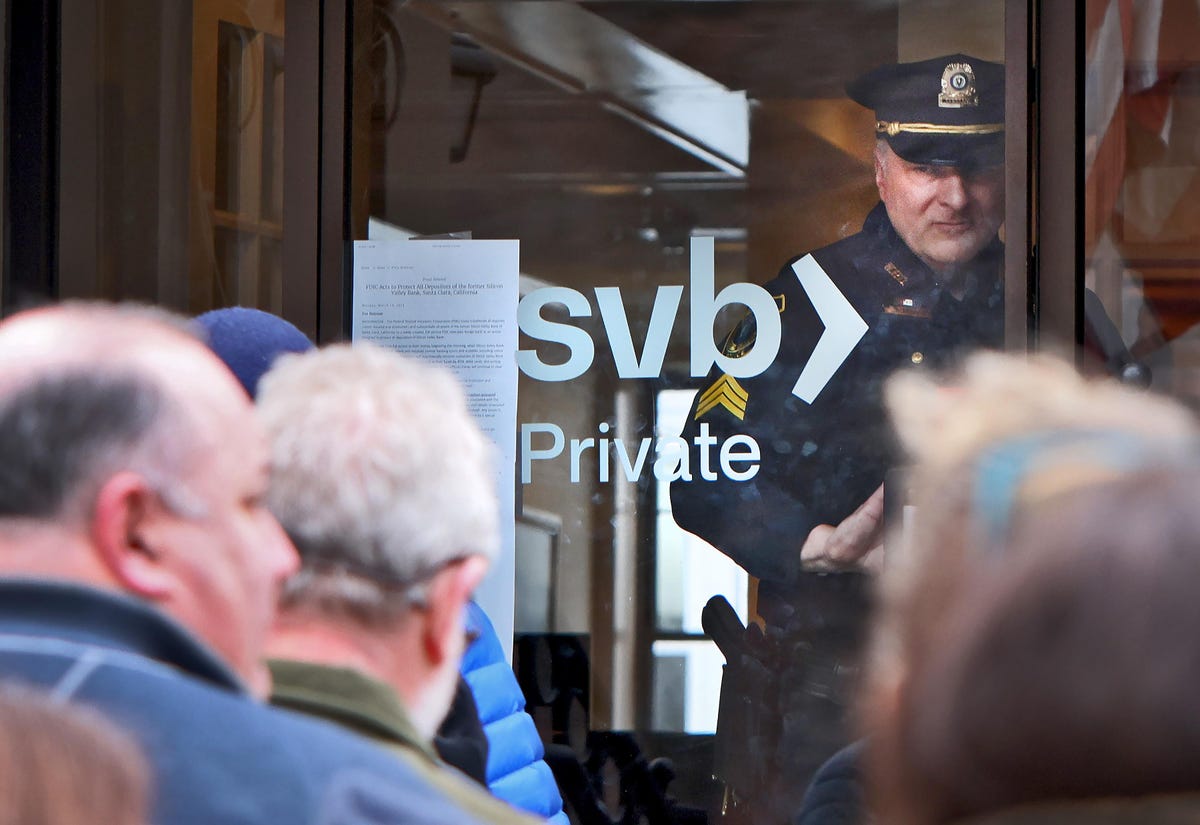There have been many wagging fingers and sharp tongues in Congress over the last two days. And a lot of irony, because you could reasonably say that many of the people firing away at regulations are in large part responsible for the current problems because of deregulation they voted for in 2018.
In the Senate Banking, Housing, and Urban Affairs Committee hearings, Montana’s senators yesterday came on strong, according to a report in The Hill. “For over a year, regulators were saying to this bank, ‘straighten up and fly right,’ and they never did a damn thing about it,” the publication quoted Sen. Jon Tester (D-MT.) said. “You did not have to be an accountant to figure out what the hell was going on here.”
As for his colleague, Sen. Steve Daines (R-MT), the Republican asked Fed Vice Chairman for Supervision Michael Barr, “If you find as part of your review that certain individuals were clearly negligent in the performance of their duties, are you willing to recommend they be fired?”
When regulators at the House Financial Services Committee on March 29, 2023 explained raising concerns about Silicon Valley Bank in 2021, Rep. French Hill (R-AR) said, “That doesn’t sound like a very urgent supervisory process,” according to a second Hill story. On hearing someone suggest tougher regulation, Rep. Blaine Luetkemeyer (R-MO) said, “How about enforcing the existing ones first?”
Yeah, about that, Luetkemeyer, Hill, Daines, Tester, and many others can also be found on the list that Newsweek compiled earlier in March 2023 of all the lawmakers who voted to weaken regulations on “smaller” banks back in 2018.
Other members of the Senate Committee who voted for deregulation were Mark Warner (D-VA), Kyrsten Sinema (I-AZ), Mike Crapo (R-ID), Thom Tillis (R-NC), John Kennedy (R-LA), Kevin Cramer (R-ND).
And on the larger House Committee: Chairman Patrick McHenry (R-NC), Frank Lucas (R-OK), Bill Posey (R-FL), Bill Huizenga (R-MI), Ann Wagner (R-MO), Andy Barr (R-KY), Roger Williams (R-TX), Tom Emmer (R-MN), Barry Loudermilk (R-GA), Alexander Mooney (R-WV), Warren Davidson (R-OH), and Ralph Norman (R-SC) on the GOP side (with a number probably not having been elected in 2018).
Not to forget a few Democrats in the House Committee as well: David Scott (D-GA), Jim Hines (D-CT), Bill Foster (D-IL), and Josh Gottheimer (D-NJ), leaving 19 who didn’t vote for it, whether from being opposed or not in office at the time.
As Sen. Elizabeth Warren (D-MA) said on March 7, 2018 about the weakening on banking regulations that would eventually become law, “If this bill passes, Washington will scrap those rules for 25 of those enormous banks. Under this bill, a bank that controls up to a quarter of a trillion dollars in assets and has offices around the country and around the globe will follow the same rules and regulations as a tiny little bank in Adams, Massachusetts.”
Those 25 banks that were of significant size included SVB
VB
Every time the country has started with weak banking regulations or rolled them back, there has been trouble. A list from Rodney Ramcharan, a professor of finance and business economics at the University of Southern California, is what you might expect: the Great Depression, the Savings and Loan crisis of the 1980s, the Great Recession, and now the start of something new. Maybe it will halt at a handful of “smaller” banks with hundreds of billions in assets—ah, wait, Credit Suisse had to be bought out by UBS in Switzerland to keep it from going under.
As a new economic study, by Yale and Boston College researchers, on 750 years (no typo) of banking history shows, “the combination of account guarantees and emergency lending, additionally coupled with a private sector involvement” that we are seeing today and did in the Great Recession, have a high tendency to turn into “’systemic’ bank-distress episodes.”
That is technical terminology for the people hung out to dry being the general populace and taxpayers.
The country gets into a revolving door. Strong regulations are in place. The financial services industry chafes under restrictions that curtail developing opportunities for profit. They lobby and elected officials, who are often sympathetic with the capitalistic drive, ease off. Then some executives go too far without proper risk management. Things blow up at some institutions and the interconnected nature of economics and finance cause spread of contagion. Someone needs saving, usually at the expense of taxpayers, the public demands a change, and stronger regulations go into place. Until the next round.
It is time that elected officials stop pretending that the problems lie with some small set of rascals, whether Congress or an administration wants to point at executives or regulators. It is legislators who decide where to impose regulation. They are the also the ones who trim it back. These are the people ultimately responsible for bad policy that enables worse actions with terrible consequences. Maybe they could try something different for a change.
Read the full article here










